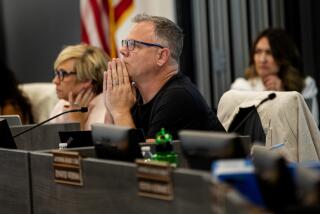Homeowners can reverse rules enacted by association board
Question: Our association board wrote several pages of new rules and regulations that we owners don’t want. We want to demand a “special meeting” to reverse these rules but don’t know exactly how to do it. What is the procedure for this? Can the board disallow proxies for this vote?
Answer: Owners who follow the necessary steps in a timely manner can reverse rules enacted by a board. Drawing mainly from Civil Code sections 1350 to 1378 and the Corporations Code, here are the steps the association must follow and which owners must take to overturn new rules in an association:
Notification: Owners are deemed to have been notified by the association of a rule change on delivery of a notice of the rule change or on enforcement of the resulting rule, whichever is sooner.
Member action: Under California Civil Code section 1357.140, members of an association whose ownership interests together total 5% or more of the separate interests (depending on the development these could be units, houses, vacant lots or mobile homes) may call a special meeting of association owners to reverse a rule change.
Meeting: A special meeting of the members may be called by delivering a written request to the president or secretary of the board of directors. Notice to either director constitutes notice to all directors. That request may not be delivered more than 30 days after the members of the association are notified of the rule change. After receiving the request, the board shall provide notice of the meeting to the association members and hold the meeting in conformity with Corporations Code section 7511. If the board does not call the meeting in a timely fashion, the 5% of owners may set the date for the required special meeting.
Notice: Association owners who are entitled to vote at a meeting where an action is required or permitted to take place should be notified not less than 10 nor more than 90 days before the meeting (not less than 20 days if not mailed by certified, first-class or registered mail). If the board fails to provide the agenda and notice of the meeting in a timely fashion, the owners should provide their own agenda and meeting notice within the specified time.
Collecting signatures: An owner’s request to copy or inspect the association membership list for the purpose of calling a special meeting may not be denied on the grounds that the purpose is not reasonably related to the owner’s interests as a member.
Vote: A majority vote of those present at a meeting at which a quorum is present is needed to reverse a rule unless the covenants, conditions and restrictions (CC&Rs;) or bylaws specify a greater proportion. In lieu of a called meeting, the board may distribute a written ballot to every owner in conformity with the requirements of Corporations Code section 7513. In the situation you describe, no proxies would be permitted. At a meeting, owners may cast one vote per unit unless the CC&Rs; or bylaws permit the use of proxies.
Readopted rule: A rule may not be readopted for one year after the date of the meeting reversing the rule change.
Notice of rule reversal: Within 15 days of the close of voting, the board of directors shall provide notice of the results to every association owner.
The late Stephen Glassman, an attorney specializing in corporate and business law, co-wrote this column. Vanitzian is an arbitrator and mediator. Send questions to P.O. Box 10490, Marina del Rey, CA 90295 or noexit@mindspring.com.
More to Read
Inside the business of entertainment
The Wide Shot brings you news, analysis and insights on everything from streaming wars to production — and what it all means for the future.
You may occasionally receive promotional content from the Los Angeles Times.








